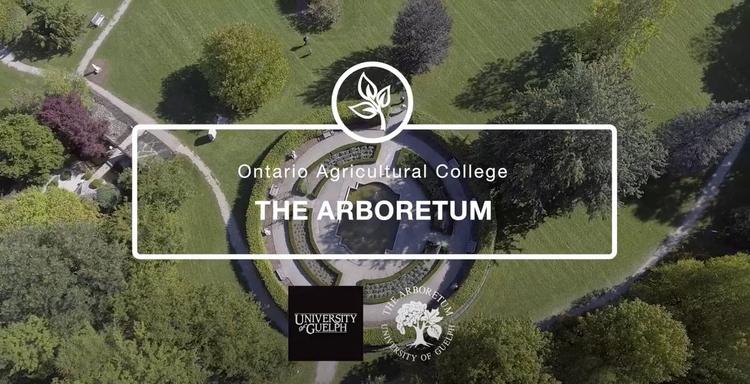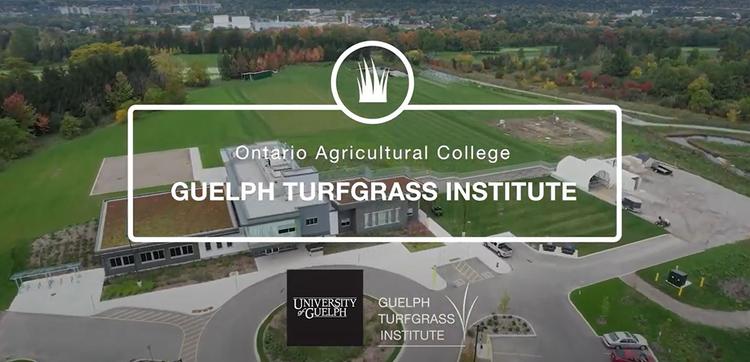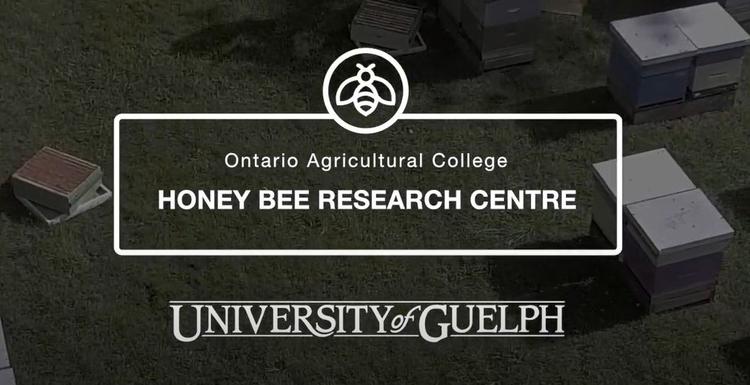Educational Programming and Resources for Food, Environment and Agriculture
The OAC Student Liaison Program has developed educational resources, virtual programming and on-campus experiences to enhance your students knowledge of food, agriculture, environment and community.
Engage with the OAC Student Liaison Program and help us inspire the next generation of leaders in food and agriculture.
Have questions? Contact Christine Wilkinson, Liaison Manager: oacliasn@uoguelph.ca
Visit U of G for an on-campus experience.
We're excited to welcome you and your high school students to the University of Guelph campus for a day of experiential learning! Request an on-campus experience at the University of Guelph with the OAC.
Discovering Honey Bees
Visit the Honey Bee Research Centre and get the buzz on bees. Students will learn about honey bee biology, social structure, and how to behave around stinging insects. Students will then have an opportunity to visit the apiary to see different parts of a live hive. Finish with a taste of honey directly from the honeycomb! Only available in September, October, April and May due to weather conditions.
Soil Texturing and Biology Lab
Students will participate in interactive exercises using hand textural tests to determine different types of soil texture. The difference in soil textures and its importance to agriculture, environmental planning and urban development will be explored. Learn more about Soils At Guelph. Currently Unavailable.
Insect Inspectors at the Arboretum
Step outside of your comfort zone and uncover the diversity of insect species in The University of Guelph Arboretum. Students will search for live insects in the environment and identify them with help from a naturalist.
All About Trees at The Arboretum
They're big, beautiful and all around us; but how much do we really know about trees? Don't let yourself get lost in a sea of green. Let's learn more about the fascinating world of trees. In this session, you'll visit one of the most beautiful natural spaces on campus, the Arboretum! Students will walk through The Arboretum with a naturalist to learn about tree biology, identification, disease and conservation.
Research in the Arboretum
Do you have students that want to be a scientist? It doesn't take years of schooling, or a lift lived in a research lab to be a scientist. The University of Guelph Arboretum grounds are home to many research projects. Let's take a closer look at some of the awesome research and conservation initiatives that take place in the Arboretum, while becoming citizen scientists ourselves!
Insect Identification
Discover and explore Ontario's amazing insect diversity by starting with a brief look at either the insects that occur in and around our homes, or insect pollinators! Students will learn how to properly use a microscope and examine a variety of preserved insect specimens in this unique workshop.
The Gluten Project
A short presentation on the Department of Food Science is followed by hands-on activities including a sensory test with gluten-containing and gluten-free bread. The differences in texture and structure are discussed in relation to the role gluten plays in cereal processing. Students will compare the properties of wheat flour to other cereal flours and discuss the negative perceptions of gluten.
Exploring Food Chemistry
Visit the Department of Food Science to learn about the chemistry of food. Students will learn about scientific concepts using food activities including; cold cream versus warm cream to make butter and using egg white to stabilize foams.
Ice Cream Basics
This activity will cover the basic concepts of ice cream making-- from understanding the importance of the ingredients in the ice cream mix, to uncovering the reason behind the type of freezer used. Students will get the opportunity to use a semi-electric ice cream maker to freeze ice cream.
Fun with Food Function
This activity will allow students to learn about food ingredients, and how they can help improve the quality of foods. The function of ingredients goes beyond taste, so we will conduct hands-on experiments to demonstrate the function of different ingredients in food stability and how to adapt to changing preferences!
Uncovering the Mystery of Food Biopolymers
Biopolymers are important parts of many foods. In this activity, we will explore biopolymers in food and other applications, and identify ways to measure the important properties they contribute to materials. Students will get the opportunity to solve a scientific mystery, and to use technical tools common in food science labs.
Collecting Seeds for a Changing Climate
Learn how to care for plants in our ever-changing climate and environment. Explore how plants are adapted to survive under a broad range of different environmental conditions, and how other environmental concerns have an impact on the way you garden. Students will also learn how to clean seeds through a hands-on activity, and go home with skills to save seeds from plants for next year's planting! Learn more about plant science here.
Plant Identification
Challenge your knowledge of plants at Bovey Greenhouse. Learn from a Greenhouse Technician about current plant research followed by an interactive activity where students will work in groups to identify a collection of plants.
Plant DNA Extraction Lab
Get introduced to plant genetics with the Department of Plant Agriculture. Students will extract DNA from plant tissue accompanied by an informative lecture on applications in plant research and breeding. Currently Unavailable.
Plant Preservation at GRIPP
Visit on the Gosling Research Institute for Plant Preservation and uncover the concepts of plant preservation, conservation and biodiversity. Students will attend a short lecture on plant tissue culture, cryobiology, and plant production system followed by an activity of transferring plant tissue culture in a laboratory setting.
Biomaterials at BDDC
Tour the innovative Bioproducts Discovery and Development Centre. Students will be introduced to research focusing on biobased materials like green plastics, plant by-products, and industrial co-products to create products such as compostable coffee pods and car parts. Students will tour the labs where different formulations are engineered and samples are tested for various properties.
Animal Welfare
Students will learn from OAC Liaison Officer and Equine Management Alumna, Rachel Chater, by participating in interactive exercises to deepen their understanding of the connections between animal welfare and science. Participants will learn to utilize welfare frameworks and Ontario Codes of Practices to evaluate animal-based scenarios through case studies. This workshop is intended for students that have some knowledge in agriculture and farm animals. Please note interaction with live animals is unavailable. Currently Unavailable.
There are currently no business workshops on-campus. Sign up for our Newsletter to get updates for future offerings.
Book a virtual guest speaker for your class.
Whether you and your students are in the classroom or at home, you can request a guest speaker to visit your classroom virtually at a date and time that works for you. Speakers will attend using your preferred platform and will answer live questions from your students. Request a guest speaker for your class.
Animal Behaviour: Explore the foundation behind specific behaviours of a variety of species including topics of genetics and physiology. Learn about careers in the field of animal behaviour, care and research. Recommended for grades 10-12 at the U or C level.
Animal Housing and Welfare: Combine knowledge of production animal species' respiratory, circulatory, and digestive systems with information on how these animals relate to their physical environment. Recommended for grade 11 & 12 students at the U or C level. Available Fall 2025
The Buzz on Bees: Expand your knowledge of honey bee social structure and anatomy. Take part in fun activities that challenge your understanding of these important insects through fun activities and showcase how they contribute to our food supply. Recommended for grades 9-12.
Insect Inspectors at the Arboretum: Step outside of your comfort zone and uncover the diversity of insect species in The University of Guelph Arboretum. Students will search for live insects around their home, neighbourhood, and their local environments and identify them with help from a naturalist. Recommended for grades 9-12.
All About Trees at The Arboretum: Virtually visit one of the most beautiful natural spaces on campus, the Arboretum! Students will explore their local environments to identify the different species of trees and plants. They’ll learn about tree identification, disease, conservation, and biology from a naturalist at The University of Guelph’s Arboretum and be able to ask questions about the species they found near their homes. Recommended for grades 9-12.
Research in the Arboretum: Do you have students that want to be a scientist? It doesn't take years of schooling, or a lift lived in a research lab to be a scientist. The University of Guelph Arboretum grounds are home to many research projects. Let's take a closer look at some of the awesome research and conservation initiatives that take place in the Arboretum, while becoming citizen scientists ourselves! Recommended for grades 11-12.
Climate Change: Learn from a current University of Guelph Ecology student in the Environmental Sciences program! Students will explore the different effects climate change has on the earth and our society. They will discover the differences between weather and climate and learn about carbon and its role in climate change. Recommended for grades 9-12.
Ending Global Hunger: Learn from Spencer Henson, a professor in the Department of Food, Agricultural & Resource Economics about ending global hunger. Today, over 800 million people do not have enough to eat. That means they do not eat enough food each day to meet their energy needs; they go hungry. At the same time, many people in rich countries like Canada have a plentiful diet, and many of us over-eat. Looking to the future, predictions of population growth suggest there could be 10 billion people or more on the planet. There are genuine concerns over whether we can adequately feed that many people. Recommended for grades 10-12.
Food Insecurity in Canada: Learn from Spencer Henson, a professor in the Department of Food, Agricultural & Resource Economics. This seminar explores the state of food insecurity in Canada. It poses the question - why does food insecurity exist in a rich country like Canada? Trends in food insecurity over time and differences across Canada are described. Then, factors potentially explaining food insecurity are explored including: 1) incomes and poverty; 2) level of food prices (and the underlying influences on these); and 3) access to food. Possible solutions to the food insecurity problem are discussed in conclusion. Recommended for grades 11-12.
Exploring Food Chemistry: Visit the Department of Food Science virtually with a master's and Ph.D. student to learn about the chemistry of food. Students will learn about scientific concepts using materials they have at home. Activities include using cold cream versus warm cream to make butter and egg white to stabilize foams. Recommended for grades 11 & 12 at the U level with a science foundation.
The Gluten Project: Learn from a master's and Ph.D. student in the Department of Food Science through an interactive presentation that includes hands-on demonstrations including a sensory test with gluten-containing and gluten-free bread. Students will compare the properties of wheat flour to other cereal flour with the materials they have at home. They'll also discuss the negative perceptions about gluten. Recommended for grades 11 and 12 at the U level with a science foundation.
What’s on Your Plate?: Learn from the Ontario Agricultural College about various aspects of the food production industry. Gain a better understanding of where your food comes from and how it gets to your table with interactive components that can be completed from home or in the classroom. Recommended for grades 11 & 12 at the U level with a science foundation.
Take a virtual tour of a U of G facility.
Our experts take you on a tour of our innovative facilities, which are used for teaching, research, and enjoyment. These tours allow you to explore the unique places found on the University of Guelph campus.
Once you and your students have finished watching a virtual facility tour, you can request a Q&A with a researcher or expert. Each scheduled virtual Q&A session will include a short presentation on the University of Guelph’s programs that relate to the subject area of choice, followed by a question-and-answer period with the facility expert. It is recommended to prepare questions for the expert ahead of the scheduled session. Students will have the opportunity to request academic program materials to be mailed to them and learn about future events hosted by the OAC Liaison Program.
Request a Q&A with an OAC researcher or expert.

The Arboretum
This exciting virtual experience will highlight all that The Arboretum at the University of Guelph has to offer. Did you know it isn't just a beautiful space to relax it is also used for teaching, conservation, and research? Learn from The Arboretum's Interpretive Biologist about an old growth forest’s ecosystem, and how to interpret habitats. You’ll visit Canada’s first endangered tree species and learn about woody plant research and the gene bank project. End on a calm note in The Arboretum’s Japanese Garden, where many students and community members visit to relax and get a break from the hustle and bustle of everyday life. View the Virtual Tour of the Arboretum.

Guelph Turfgrass Institute
Explore the brand-new site of the Guelph Turfgrass Institute in this virtual tour. You’ll learn about how different types of grasses are selected for various uses, including municipal parks, home lawns and sports field. A couple of current students will share their experiences in the Diploma in Turfgrass Management program at the University of Guelph and talk about career opportunities in the industry. You’ll explore what is taking place in the research lab at the Guelph Turfgrass Institute. View the Virtual Tour of the Guelph Turfgrass Institute.

Honey Bee Research Centre
In this virtual tour of the Honey Bee Research Centre, you'll explore the apiary, get up close with a live honey bee colony, experience the honey extraction process, and look at some current research taking place on the University of Guelph campus around honey bee health. Learn about how honey bees play a key role in agricultural productivity and ecosystem sustainability by providing pollination services to crops and wild plants. There’s plenty to learn about these amazing little creatures! View the Virtual Tour of the Honey Bee Research Centre.
About OAC
Established in 1874, the Ontario Agricultural College is one of seven colleges that make up the University of Guelph. OAC is a globally recognized leader in education and research in agriculture, food, environmental sciences, and community development. The OAC provides a wide range of academic programs at the diploma, undergraduate, graduate, and certificate levels. Learn more about OAC's history here.
Thank You to Our Sponsors
This outreach is made possible through contributions from Grand River Agricultural Society, Conestoga Meats, OAC Alumni Foundation, the Student Federation of the Ontario Agricultural College, Joe & Barbara Maxwell, Brian and Margaret Little, OAC Class of ’53, OAC Class of ’65, OAC Class of ’80, and OAC Class of '64.